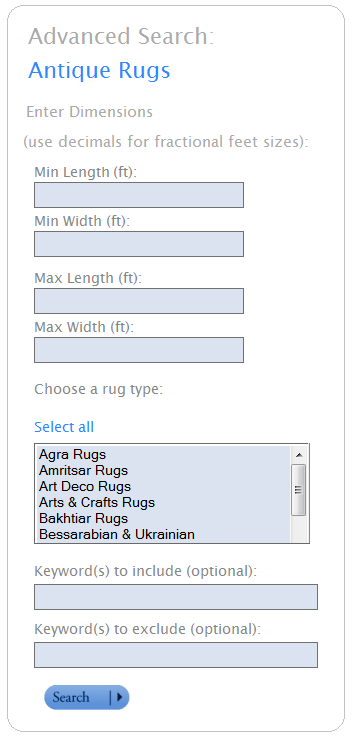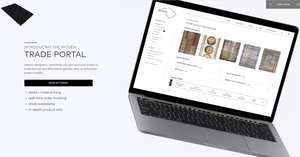Search features can make or break an online store or other content rich website in the internet age. Every minute that an online shopper spends looking for a particular item makes it less likely they will engage with the business. The shopper will either assume the company does not have what they want, or may even leave because a slow or hard-to-navigate site sends the message that the company does not really care about meeting his or her needs.
Advanced Search in Action:
Take for example a real estate listing site, which makes a profit by charging owners to list properties that they have available for sale or rent on a site where potential renters will be conducting their searches." Now, if a potential" renter looking for a 2 bedroom apartment in Hollywood that allows cats and iguanas, then that searcher would likely want to filter out properties in downtown Los Angeles that are not friendly to four-legged creatures. With modern technology, that user would also want to be able to save the search filters so that they can come back and see what had come up available in previous searches that matched their criteria. Moreover, once the user sees the latest results for that search, he or she would likely want to see the newest listings at the top of the search results page so they don’t have to waste time looking at listings they have already reviewed.
Or, perhaps they may want to now see the cheapest apartments if suddenly their budget took a beating after a recent stop off at in-and-out burger or they lost their job...The faster the user finds a listing, calls the owner, and rents the property, the happier all parties will be with their home unless, of course the user ends up living in an unpleasant environment such as a room under Mega Death’s rehearsal studio or in a scientologist’s basement.
Filtering and layer searches to speed up the process:
The point is that modern technology enables viewers to view listings, products, or any data how they want to see it and businesses need to keep that in mind. Just having a single keyword search box can yield irrelevant results and ultimately deter a visitor, which is the last thing anyone wants to do if they are using his or her website as a revenue generator!" A search box is sometimes a last resort option for a frustrated viewer, but having multiple filters and ways to sort can ease any online shopping stress. Lastly, make sure that misspelled search queries bring up results as well, so that the poor speller has a chance to shop too!
Comparing Similar Product Searches:
To illustrate the power of an advanced search option, we can take a look at the advanced search page on the Woven Accents website, which allows a viewer to find a rug by style or within a specific size range (design below slightly modified):
Woven Accents Search page:

To show another method of searching within the same industry we can look at the Doris Leslie Blau advanced search page, which is similar, but has a very useful exclude feature so that someone browsing the site can customize their search to avoid seeing results that do not pertain to them. For example, if a user does not want a grid pattern rug, they can enter the word “grid”, which would hide all resulst that include the word in the description.
Doris Leslie Blau search page:
 Here are ten tips for developing a powerful advanced search function:
Here are ten tips for developing a powerful advanced search function:
- Building a product, category, or service list with many descriptors:
ie. Size, price, gender style and color are great for clothing sales. - Consistently updating information in the database.
- Monitoring the most frequently searched keywords or filters.
- Creating clear submit buttons and pull down menus.
- Making required fields clearly marked and keeping them to a minimum.
- Developing a variety of ways to sort results.
- Giving users the ability to choose how many results they see on a page.
- Making sure that the server capability can quickly load search results.
- Recognizing misspelled words and matching them to the correct results.
- Incorporating quick view popup windows so that" viewer does not have to leave a search results page to add an item to their cart or save to a list.
If a business is working with a web designer or programmer to build a site they need to keep in mind how search features can benefit them." The list above should be taken into consideration so that an online business does not lose customers due to a viewer’s inability to locate what they need.




